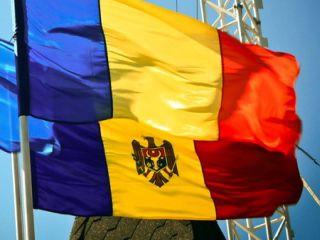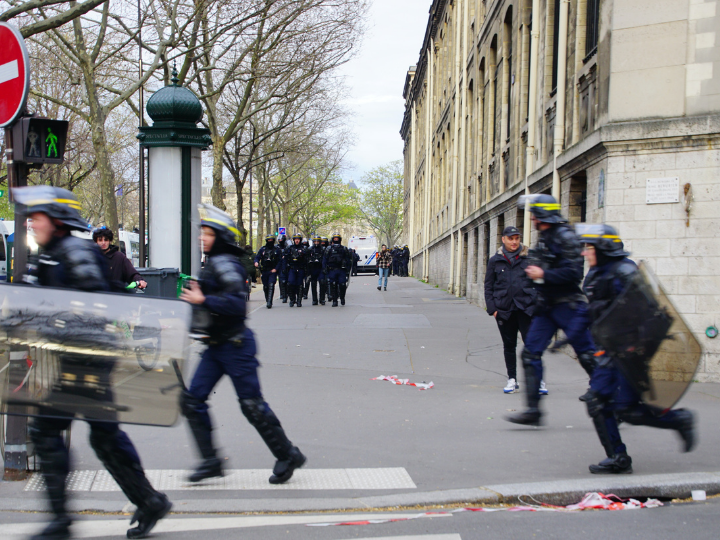by
Radu Magdin*
While still a minority, even a vibrant one, they manage, in the context of parliamentary elections this December in Romania and presidential ones in November in Moldova, to insert this topic on the radar of stakeholders in Bucharest and Chisinau, as recent emotional public meetings in Romania's capital showed.
The leaders of "Action 2012" made, in October, public appeals to the Romanian President, the Prime Minister, as well as the leaders of the main parties, to take into consideration stronger leadership on Moldova, including the official statement of reunifications plans: they argue that "Basarabia is Romania", current Moldova being part of larger Romania (1918-1940), before forcefully becoming part of USSR.
The leaders of "Action 2012" made, in October, public appeals to the Romanian President, the Prime Minister, as well as the leaders of the main parties, to take into consideration stronger leadership on Moldova, including the official statement of reunifications plans: they argue that "Basarabia is Romania", current Moldova being part of larger Romania (1918-1940), before forcefully becoming part of USSR.
The idea has more traction in Romania than Moldova, including in the polls: polling numbers vary in the two countries on the reunification topic, but typically the number is higher in Romania than in Moldova; ironically, in Romanian public perception, the Moldovans seem more likely to want to unite, and this mismatch should be addressed in the future, since strong mutual awareness is key to take any project forward on a realistic basis.
Another perception mismatch has to do Moldova's diversity and its large Russian speaking minority, as well as recognition of the fact that informational sources matter, since they shape public opinion: while Romania has become, in an accelerated way, more Europeanized and more Americanized during the past 26 years, Moldovans still watch mostly Russian TV stations. One man's Bono is another woman's Kirkorov, one Romanian may say something is "cool" as in bravo, while his Moldovan friend may call this "maladet".
Another perception mismatch has to do Moldova's diversity and its large Russian speaking minority, as well as recognition of the fact that informational sources matter, since they shape public opinion: while Romania has become, in an accelerated way, more Europeanized and more Americanized during the past 26 years, Moldovans still watch mostly Russian TV stations. One man's Bono is another woman's Kirkorov, one Romanian may say something is "cool" as in bravo, while his Moldovan friend may call this "maladet".
The realistic path for the two countries to get together in the future is through concrete projects, concrete victories inspire trust and willingness to deepen relations: this has in fact happened during the past few years, with more to come, whether talking about cultural exchanges, aid or bilateral loans, or energy security.
In time, with mutual knowledge and increased friendship and trust, Romanians and Moldovans will come to cherish both their common features and distinct traits and be able to manage their relationship maturely. This does not exclude passion, but one should be aware of the dangers of redirected passion. In the absence of strategic planning in between the two States, there is a risk that misunderstandings harm the relationship.
In time, with mutual knowledge and increased friendship and trust, Romanians and Moldovans will come to cherish both their common features and distinct traits and be able to manage their relationship maturely. This does not exclude passion, but one should be aware of the dangers of redirected passion. In the absence of strategic planning in between the two States, there is a risk that misunderstandings harm the relationship.
For example, for a Moldovan tv viewer of Russian-speaking channels, any declaration from Romania about "Basarabia" and "reunification" will be spinned in a way that makes the average Moldovan prefer his current identity rather than favour a new one, particularly since Romania is depicted by Russian propaganda as a failed case of EU integration.
At the same time, symmetrically, Romanians will not appreciate public declarations from Moldovan stars or average Joes saying they want a Romanian passport not because of personal or country affinity but because its an EU passport and an opportunity to work and travel.
Also disappointing is the idea that some unionist Moldovans have, that a failed Moldova, with a degrading economy, is riper for reunification: what everyone should focus on is Chisinau's success, otherwise its population will become more frustrated as regards its immediate future. The Romanian diaspora is big, but the Moldovan one is even higher compared to its population, so Moldova's focus should be to reform in order to bring part of its people back and convert into a successful story.
At the same time, symmetrically, Romanians will not appreciate public declarations from Moldovan stars or average Joes saying they want a Romanian passport not because of personal or country affinity but because its an EU passport and an opportunity to work and travel.
Also disappointing is the idea that some unionist Moldovans have, that a failed Moldova, with a degrading economy, is riper for reunification: what everyone should focus on is Chisinau's success, otherwise its population will become more frustrated as regards its immediate future. The Romanian diaspora is big, but the Moldovan one is even higher compared to its population, so Moldova's focus should be to reform in order to bring part of its people back and convert into a successful story.
At the same time, Bucharest is right not to appreciate comments like the ones from Moldovan Presidential candidate Dodon about the "Romanian policeman", basically renewing the main mantra of the Russian propaganda that "imperialist Romania is trying to grab poor, defenseless, Moldova". Dodon should be careful on how he treats Romania(ns), his first round advantage does not instantly make him a winner on November 13th elections, Maia Sandu's chances may prove better than expected, she has momentum and is trending upwards.
Anyway, those fearing "Romanian imperialism" can relax: we, Romanians, have plenty on our table for the moment, like preparations for our EU Presidency in 2019, when Brexit will be sealed. 2018 is a year of historic significance since it marks a century since "Larger Romania" happened, but things cannot fundamentally change in between two countries in a bit more than a year. No matter how much unionists flag their case, and no matter how sympathetic one may be to their cause - I personally know and respect lots of them - , it's untenable for Statesmen in the two countries to encourage or force referendums on the topic. The project has to be strategic and long term in order to be successful.
Anyway, those fearing "Romanian imperialism" can relax: we, Romanians, have plenty on our table for the moment, like preparations for our EU Presidency in 2019, when Brexit will be sealed. 2018 is a year of historic significance since it marks a century since "Larger Romania" happened, but things cannot fundamentally change in between two countries in a bit more than a year. No matter how much unionists flag their case, and no matter how sympathetic one may be to their cause - I personally know and respect lots of them - , it's untenable for Statesmen in the two countries to encourage or force referendums on the topic. The project has to be strategic and long term in order to be successful.
Realities favour this approach: the truth is the level of development of the two countries is different, Romania is an EU and NATO member, whereas Moldova aspires for EU membership while being wary about any NATO connection (its Constitution has a "neutrality status"). Moldova has territorial issues as regards its province Transnistria, a frozen conflict since the 90s, currently being, slowly, under warmer negotiations. Romania started cleaning up its act for the past few years and turned from corruption as country brand, to anticorruption as distinctive feature in its region.
Moldova is only starting now to clean up its act, under EU and IMF pressure. This does not mean that the two countries should not strategically decide to commit to a common future, and a common diplomatic mantra is "being together in the EU"; but it does mean like-minded Romanians and Moldovans should coordinate more on what is best for the two countries both in terms of merits and perception.
Moldova is only starting now to clean up its act, under EU and IMF pressure. This does not mean that the two countries should not strategically decide to commit to a common future, and a common diplomatic mantra is "being together in the EU"; but it does mean like-minded Romanians and Moldovans should coordinate more on what is best for the two countries both in terms of merits and perception.
*Analyst & Consultant




 By: N. Peter Kramer
By: N. Peter Kramer
